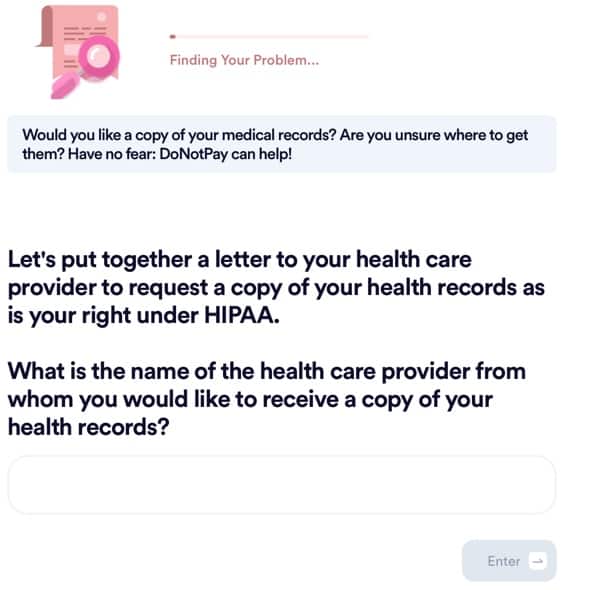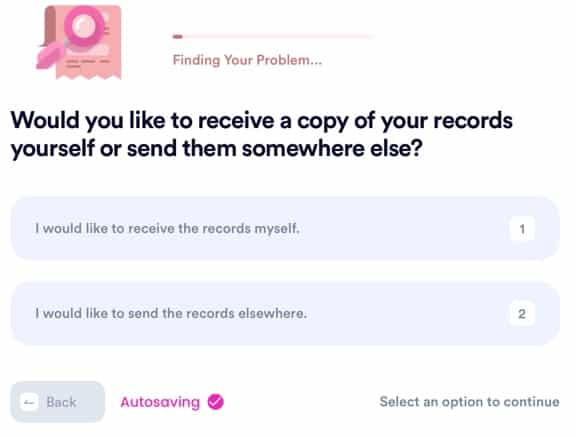Is It Possible to Have Medical Records Deleted?
You, like millions of Americans, want to know, is it possible to have medical records deleted or how to remove information from medical records. The simple answer is, "Yes." But there are strict limitations on what can and cannot be deleted from your medical records.
The rules for are governed by HIPAA (Health Insurance Portability and Accountability Act.) HIPAA exists to protect a patient's information, and it lays out how doctors, hospitals, and clinics must safeguard medical records.
Your records are protected to make it easier for different medical practitioners to know how best to treat you, especially if you have been treated by other doctors in the past. Altering, modifying, or deleting some or all records, therefore, is tightly controlled.
Learn More About Your Medical Records
Before we discuss how to remove information from medical records, you may find it helpful to learn about medical records in general, as well as electronic health records. Most people do not know what their medical records actually say, but it is something people should know.
These records are vital in many ways. Before you can delete or alter records, you must know what they say. To get a copy of your medical records, you have to complete a “request to release records” form. Forms differ, depending on where your records are kept, so it will help if you know more about the form itself and how to use it to request your medical records.
If you would like DoNotPay to manage to get your records, so you can study them and decide what you want to have deleted,
How Accurate Are Medical Records?
It is probably fair to say, nothing is perfect, so errors will exist somewhere in someone's records file. A 2021 Physician's Weekly article, said that of 22,889 patients who returned a survey on medical records accuracy:
- 4,830 (that's 25%) found mistakes.
- Just under 10% of that group said the errors were "very serious,"
- 42.3% of them said the errors were "serious."
- 32.4% described the errors as "somewhat serious."
Based on that survey, it may well be in your best interests to learn how to get your medical records. It is also possible that old records may be less accurate than newer ones. Before laptops and tablets were in every office, notes were taken by hand or transcribed from recording machines. Records are not kept forever, so you may want to know how long medical records are kept.
Common Errors in Medical Records You Can Delete and Correct
HIPAA gives you the right to correct errors and to make amendments to your medical records. Common errors you may want to correct include:
- Simple spelling mistakes or other typographical errors. There are many ways, for example, to spell common last names. This kind of error probably wouldn't matter to you and your regular doctor or PA, but if you were in an accident and were rushed to an ER, it may. An incorrect spelling could also result in the wrong records being sent to someone who requested their own medical records. That error should be deleted and corrected.
- Outdated or incorrect addresses and phone numbers should be deleted and corrected. If, for example, a John Smith lives at 101, XYZ Street and a Jonathan Smith lives at 101 XYZ Avenue, records could be confused. Treatment may be inappropriate or incorrect charges could be billed.
- Mistakes about symptoms, diagnosis, treatment, prescriptions, allergies, and anything else that may describe your health or could affect future treatment should be deleted and amended.
- Omitted or incomplete information should be added if you believe it may influence future treatment or even current billing issues.
Some Errors May Not Need to Be Deleted
Some errors are unlikely to affect you. If, for example, you saw your doctor at 3.00 pm, but the record says it was 4.00 pm, so what? If, however, you are in any doubt at all about something that is not accurate, you should play safe and have it deleted.
| What Cannot Be Deleted from Medical Records? | Basically, anything on a medical record that is correct and accurate cannot be deleted. You cannot request something to be deleted because it is embarrassing. If a person had a drug problem, a mental health problem, suffered abuse, or had their own violent outbursts, for example, and was treated for those situations, then they are relevant to past history and to possible future treatments. They cannot be deleted. |
| What if Your Provider Refuses to Delete a Medical Record | Medical providers do not have to delete something, just because a patient makes the request. If they do refuse to delete something, they must notify you and keep a copy of both your request and their denial in your medical records file. |
DoNotPay Will Help You With Your Medical Records
To get your medical records, you must contact the appropriate office within a hospital or medical practice. That can be time-consuming. Once you make contact, you must get the request form to see your records. Then, after deciding that something does need to be deleted, you have to make your request, submit it, and deal with their response. If you would rather have DoNotPay manage the process, all you have to do is follow these three simple steps.
- Look up medical records on DoNotPay's website.

- Enter the name of the health care provider you'd like to receive medical records from.

- Answer a few questions about your provider and where you'd like to send the records.

It's that simple! DoNotPay will send an effective letter and get your records to you in no time!
DoNotPay Helps You Get Medical Records From Specific Hospitals
Every hospital has a medical records department. How you request your records varies by both medical center and by state. DoNotPay provides details about hundreds of hospitals, clinics, and other medical providers, so if you want to learn about one in particular, go to DoNotPay and check out the list. Just as examples, here are four hospitals we cover:
- Kaiser Medical Records
- Mercy Medical Records
- Baptist Medical Records
- Cleveland Medical Records
- Kaiser medical records
- How long are medical records kept
- How to get my medical records
How Else Does DoNotPay Help?
There are many ways DoNotPay can help. We can help you learn more about arranging an advanced health care initiative, or how to file a complaint if you are not satisfied with the service you receive from an organization.
You may even need to know how to file a complaint in a small claims court. DoNotPay has lots of ideas to help you pay bills if things are becoming difficult, or how to request sick leave. If you have discovered an error in your child's medical records, you may need to send in a copy of their birth certificate.
Whatever it is, DoNotPay is here to help.
 By
By